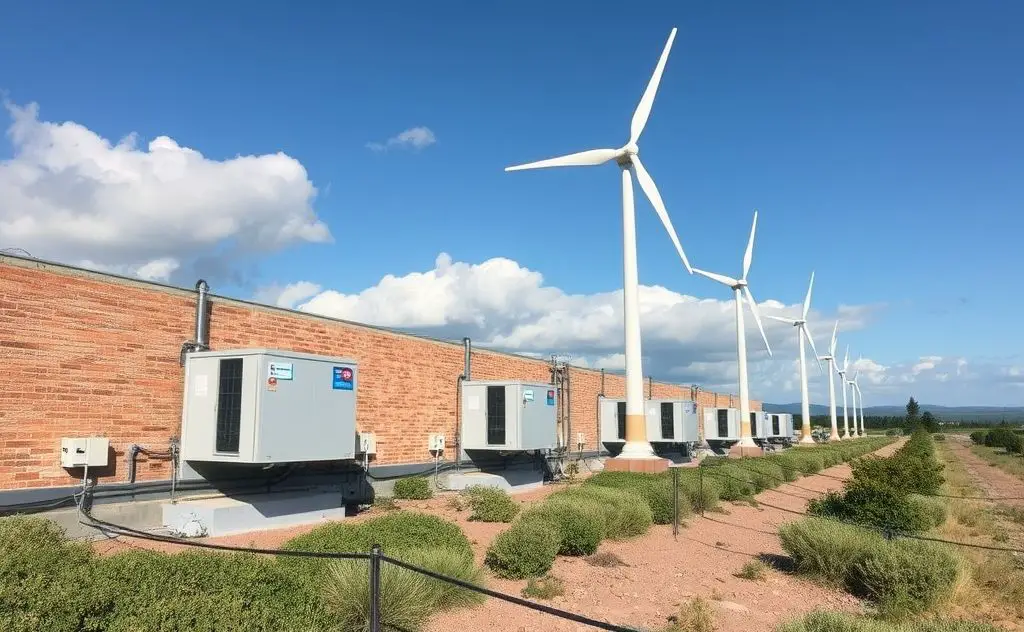Wind energy applications in HVAC systems enhance energy efficiency by powering ventilation, heating, and cooling processes through renewable energy sources.
Wind energy is revolutionizing commercial HVAC operations by providing clean, cost-effective power for heating, cooling and ventilation. This sustainable approach reduces energy costs while meeting environmental goals.

Wind-Powered HVAC System Components
Wind Turbines for HVAC Applications
Modern wind turbines designed for commercial buildings typically range from 10kW to 100kW capacity. These can be:
- Rooftop-mounted vertical axis turbines
- Freestanding horizontal axis systems
- Building-integrated wind solutions
Energy Storage Integration
Battery systems store excess wind energy for use during low-wind periods. Lithium-ion batteries with 4-8 hour capacity are commonly paired with wind-powered HVAC.

Key Benefits of Wind-Powered HVAC
| Benefit | Impact |
|---|---|
| Energy Cost Reduction | 40-60% lower operating costs |
| Carbon Footprint | Up to 90% emissions reduction |
| System Longevity | 25-30% longer equipment life |
Implementation Strategies
Retrofitting Existing Systems
Many commercial buildings can integrate wind power with their current HVAC infrastructure. This often involves:
- Conducting a wind resource assessment
- Upgrading electrical connections
- Installing power conversion equipment
New Construction Integration
For new buildings, wind-powered HVAC can be designed from the ground up. The best built-in heating systems now often include hybrid wind/gas options for reliability.
Financial Considerations
The USDA’s Rural Energy for America Program offers grants and loans for renewable energy projects including wind-powered HVAC systems. Typical payback periods range from 5-8 years.
According to Department of Energy research, commercial wind applications have seen 30% cost reductions since 2015.
Case Studies
Midwest Office Complex
A 200,000 sq ft office building in Illinois installed three 50kW turbines that now provide 65% of its HVAC needs, saving $85,000 annually.
Coastal Retail Center
A shopping mall in Massachusetts combined wind turbines with solar heating technology to achieve net-zero HVAC operation.
Future Developments
Emerging technologies like airborne wind energy systems and micro-turbine arrays promise to make wind-powered HVAC viable in more locations. The global market is projected to grow at 12.4% CAGR through 2030.
